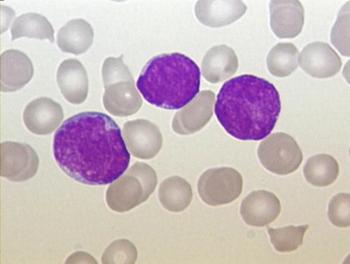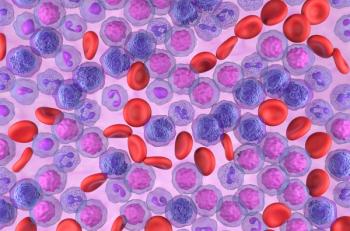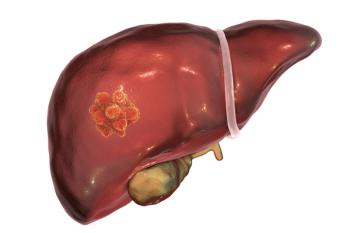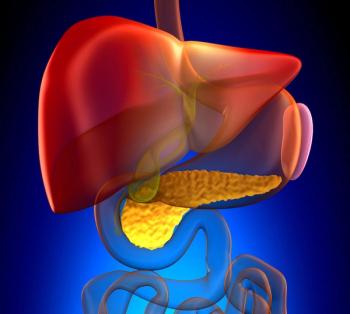
Findings from a phase 1b trial support the tolerability and potential survival benefit of CAN-3110 as a treatment for patients with recurrent high-grade glioma.

Your AI-Trained Oncology Knowledge Connection!


Russ Conroy is an Associate Editor for CancerNetwork. He grew up in Hillsborough, New Jersey, and graduated from Rutgers University-New Brunswick in 2022.
On the weekends, he likes to unwind by playing video games with friends, tailgating at Rutgers football games with his family, or building his music collection with a visit to Princeton Record Exchange.

Findings from a phase 1b trial support the tolerability and potential survival benefit of CAN-3110 as a treatment for patients with recurrent high-grade glioma.

Administering pegylated asparaginase continuously to pediatric patients with acute lymphoblastic leukemia appears to be safe without compromising the efficacy of treatment.

HEMO-CAR-T can now proceed with its evaluation as a treatment for those with acute myeloid leukemia as part of a phase 1 trial.

Findings from a phase 2 trial support the potential survival benefit of BXCL701 plus pembrolizumab in patients with small cell neuroendocrine prostate cancer.

Data from the phase 3 MARIPOSA study support the Type II application for amivantamab plus lazertinib as a treatment for those with EGFR-mutated non–small cell lung cancer.

Treatment with repotrectinib in patients with ROS1 fusion–positive non–small cell lung cancer results in mostly low-grade adverse effects in the phase 1/2 TRIDENT-1 trial.

Investigators discontinued the phase 3 ENHANCE-3 study after magrolimab plus azacitidine and venetoclax yielded an increased risk of death in those with acute myeloid leukemia.

Resection can be safely performed in select patients with cT4 non–small cell lung cancer without compromising perioperative survival, according to Neel Chudgar, MD.

Treatment with second-line vepdegestrant in those with advanced breast cancer is currently under evaluation as part of the phase 3 VERITAC-2 trial.

The FDA sets a Prescription Drug User Fee Action date of June 21, 2024 for blinatumomab as a treatment for those with CD19-positive B-cell precursor acute lymphoblastic leukemia.

Findings from the FRUTIGA study support fruquintinib plus paclitaxel as a promising second-line treatment for those with advanced gastric or gastroesophageal junction adenocarcinoma following prior chemotherapy.

Data from the phase 2 NIPU trial support the FDA’s fast track designation for UV1 in combination with nivolumab and ipilimumab as a treatment for those with unresectable pleural malignant mesothelioma.

Screening frequency appears to be a weak risk factor for advanced breast cancer, with obesity in post-menopausal and dense breasts in pre-menopausal patients being more prominent factors.

Investigators are assessing the safety, tolerability, and initial efficacy of BST02 in those with advanced or metastatic liver cancer as part of a phase 1 trial.

Treatment with NT-I7 may boost the immune system and enhance antitumor activity in patients with pancreatic cancer and other solid tumors.

Tisotumab vedotin may become the first antibody drug conjugate to receive marketing authorization in the European Union as a treatment for those with cervical cancer.

Adding bevacizumab to atezolizumab plus carboplatin and pemetrexed appears to be tolerable among patients with metastatic nonsquamous non–small cell lung cancer.

Findings from the phase 1/2 LINKER-MM1 trial support the marketing authorization application for linvoseltamab in the management of relapsed/refractory multiple myeloma.

Most patients with acute myeloid leukemia appear to remain on treatment with ziftomenib plus standard-of-care therapy in the phase 1 KOMET-007 trial.

Data from the phase 2 SPEARHEAD-1 trial support the biologics license application for afami-cel as a treatment for patients with advanced synovial sarcoma.

Clinical practice guideline amendments detail novel urinary biomarkers and agents that may improve Bacillus Calmette-Guerin efficacy in the management of non-muscle invasive bladder cancer.

FDA initiatives such as the Food and Drug Omnibus Reform Act will set goals and specify measures for improving representation in pediatric cancer clinical studies.

Findings from the phase 3 PERSEUS trial support the supplemental New Drug Application for the daratumumab and hyaluronidase-fihj combination in transplant-eligible newly diagnosed multiple myeloma.

Patients with multiple myeloma appear to feel confident in being able to report adverse effects associated with bortezomib independently via digital tools.

Data from the phase 3 INSPIRE trial may support iruplinalkib as a new treatment option for those with advanced ALK-positive non–small cell lung cancer.

Japan’s Ministry of Health, Labour, and Welfare also accepted a supplemental new drug application for lisocabtagene maraleucel in relapsed/refractory follicular lymphoma.

Adding daratumumab to VRd induction and consolidation therapy plus lenalidomide maintenance provides a benefit with respect to MRD-negative status among patients with multiple myeloma.

At 1 and 2 years, patients with hepatocellular carcinoma and narrow surgical margins experienced encouraging recurrence-free survival rates following adjuvant radiotherapy in the phase 2 RAISE trial.

Data from the phase 2 DESTINY-PanTumor02 trial support the supplemental biologics license application for trastuzumab deruxtecan as a treatment for those with metastatic HER2-positive solid tumors.

Results from the randomized LASRE trial support the use of laparoscopic-assisted surgery for patients with low rectal cancer.